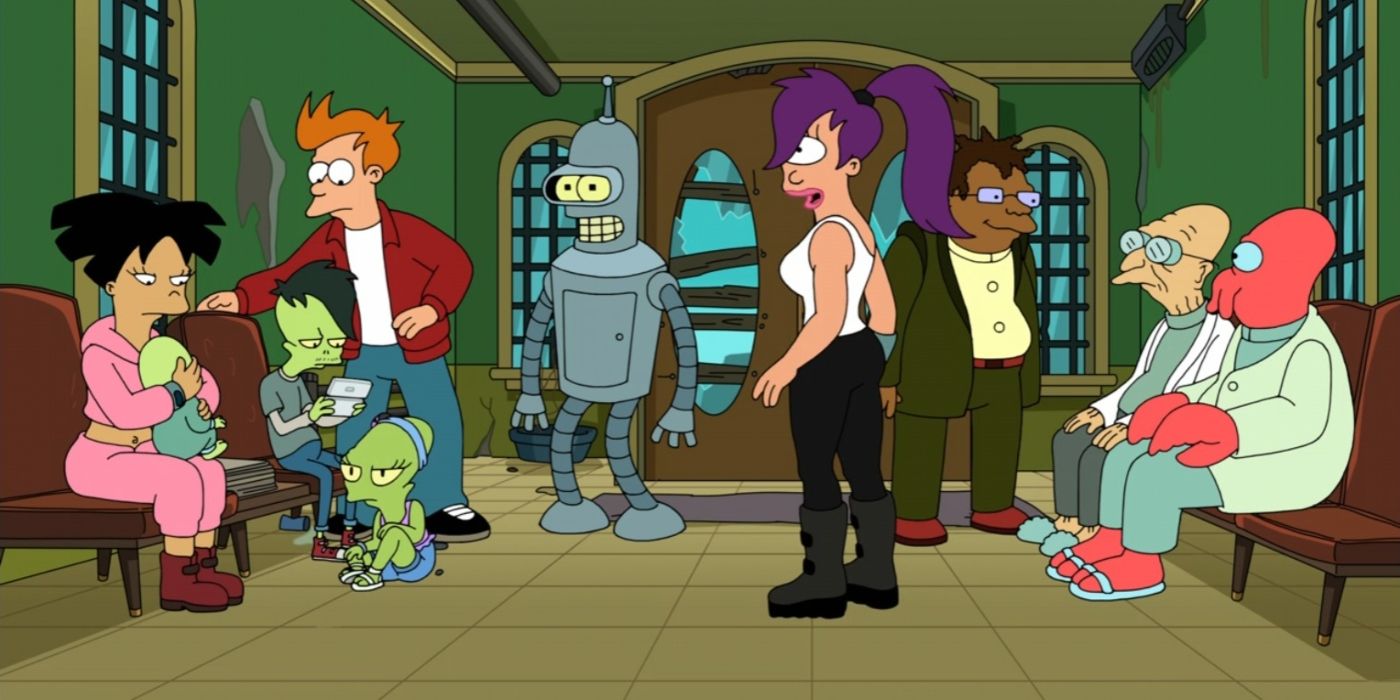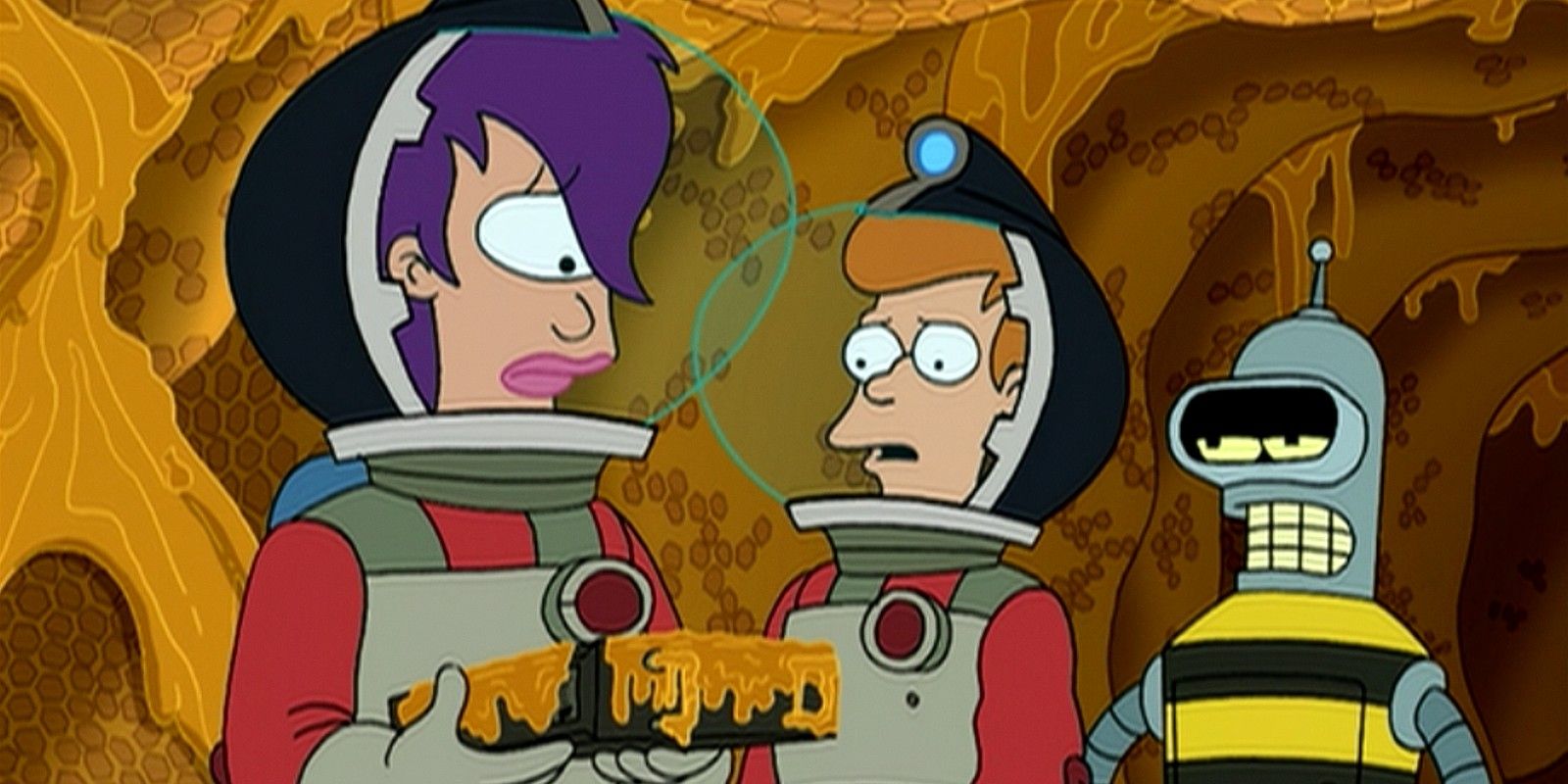Futurama Season 12’s Returning Season 3 Character Reveals A Major Flaw With The Show’s Timeline

The following contains spoilers for Futurama season 12 episode 8, “Cuteness Overload,” now streaming on Hulu
Futurama brought back some old characters for season 12, but their defining characteristics quietly break the show’s long-running timeline. The sci-fi comedy has a habit of bringing back many of its supporting characters into unexpected circumstances. This was never clearer than earlier in season 12, with Futurama episodes like the Squid Games parody “Quids Game” highlighting the show’s flexibility. For the most part, these supporting characters help flesh out the bizarre universe of the 31st century without interrupting the general flow of the series’ continuity. This strengthens the universe of the show without undermining it too often in unexpected places.
However, that isn’t the case every time as seen in season 12’s “Cuteness Overload.” Although the episode features a greater focus on Amy and her family while throwing in some (dated) satirical references to collectibles like Beanie Babies, the episode also has a cute emotional storyline for a long underutilized minor character. The problem is that this also highlights a flaw within the Futurama continuity, which undercuts a uniquely powerful element of Futurama‘s singular timeline. While the central plot of “Cuteness Overload” is a solid emotional story, it does highlight a serious flaw in Futurama‘s approach to the overarching timeline.
Futurama’s Orphans Break The Show’s Timeline
Over Twenty Years Later, And The Kids Are Still Kids
Futurama season 12 confirms that the orphans introduced in earlier seasons are still children, even though other episodes have confirmed that over two decades have passed in-universe, quietly breaking the timeline of the show. Introduced in season 2, orphans like Sally, Albert, and Nina have been a frequent source of dark comedy throughout Futurama. Their malnourished lives have been played for grim laughs, while also illustrating Leela’s plight at the Orphanarium as a child. They’re all still there in season 12’s “Cuteness Overload,” where Amy visits the institution to teach her spoiled children a lesson, with Sally becoming Mandy’s friend.
However, this is actually a contradiction that throws off the show’s internal timeline, and feels like a weird choice given the season’s focus on the realistic passage of time. “The Temp” confirmed Fry’s vacation after season 3’s “Amazon Women in the Mood” happened over twenty years ago, and yet the characters have not visibly aged in that time. For the adult characters like Fry and Leela, that can be explained away easily with the futuristic tech and science of the 31st Century. However, that becomes a harder point to argue when poor orphans are still the same age decades later.
Futurama Has A Great Epic Story That Justifies A Tight Timeline
Futurama‘s Main Characters Are Great Because Of How Much They’ve Grown
While Futurama does utilize the same kind of static storytelling that other animated shows like The Simpsons or Family Guy rely on to keep the main cast consistent throughout the entire run of the show, the series has also benefited greatly from having a genuine passage of time baked into the show’s narrative. Storylines like Fry’s role as the “Chosen One” work as well as they do because of the time that the show has taken to develop them, steadily revealing over several years Fry’s importance and naturally building to all the different ways he’s saved lives across the cosmos.
The love story between Fry and Leela has taken years to develop to the point where they can now be in a stable and loving relationship, highlighting the years of development they needed to go through as people to reach that point. Bender may constantly backslide into cartoonish villainy for the sake of an episode, but the steadily developed free will and agency he’s gained become more meaningful looking back at how he’s evolved. The show’s storytelling is improved by the passage of time, which reinforces the character’s growth. There may be a status quo, but characters have definitely evolved.
Futurama’s Semi-Static Nature Has Backfired In Season 12
Why Are Amy’s Kids The Same Age As The Orphans?
Because the Futurama timeline matters, it’s important to note when it doesn’t work. It undercuts that natural feeling of growth and draws attention to the fictional nature of the show. While there are some non-canon episodes like three-part anthology episodes that ignore it, the show’s consistent mainline timeline has improved the overall show. Season 12 breaks the continuity with the orphans, raising questions about how the orphans can still be the same age when the show has repeatedly reinforced the passage of time. It’s ironic it’s an episode about Amy’s kids that reveals this problem, considering they underscore the contradiction.
Take for example, Amy and Kif’s children. The children were conceived in 2004’s season 5 episode, “Kif Gets Knocked Up A Notch,” and gestated for two decades before emerging in their current forms. Season 11’s “Children of a Lesser Bog” underscored this reality, having Amy reference the years that had passed. However, that same period should leave orphans like Sally in their late 20s or early 30s, as opposed to the same age as Amy’s daughter. The reminder of those years passing only makes the lack of other characters aging all the more obvious problem with the show’s internal logic.
How Futurama Could Fix Its Latest Timeline Problem
Actually Aging Some Characters Could Bring New Storytelling Potential To Futurama
The timeline problem with Futurama is a genuine concern for the show, especially if it’s going to utilize the in-universe years that have passed for storytelling purposes. It’s also something that could be explained away easily, given the ridiculous nature of the setting. The world of Futurama is a bizarre and overtly silly take on sci-fi, brushing off the end of the world between episodes. A line of dialogue explaining away the longer periods of non-aging could be easy enough to introduce a futuristic explanation, a throwaway gag that explains more about the universe with a well-placed and weird punchline.
A more creative and compelling change could actually address this problem head on, however. Younger characters could be finally aged up a bit, throwing new wrenches into the show’s dynamics. These kinds of changes worked wonderfully for Amy in “Children of a Lesser Bog,” which was one of the highlights of season 11. Aging up the orphans could also set Cubert and Dwight up to grow older, introducing more interesting dynamics for the Professor and Hermes. Futurama needs to address the timeline problem that it’s accidentally saddled itself with, and doing so could push the show forward in new ways.
World News || Latest News || U.S. News
Source link





